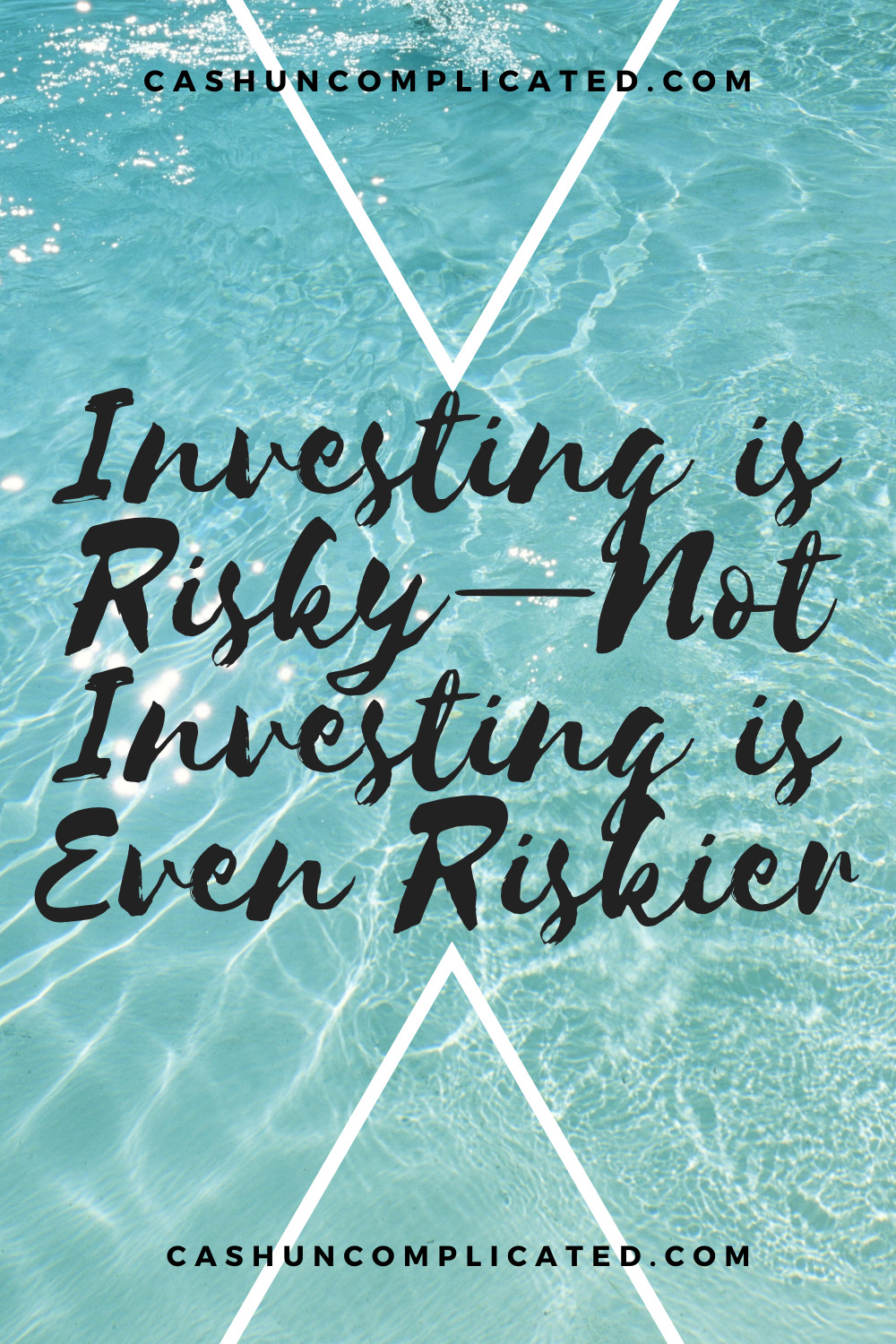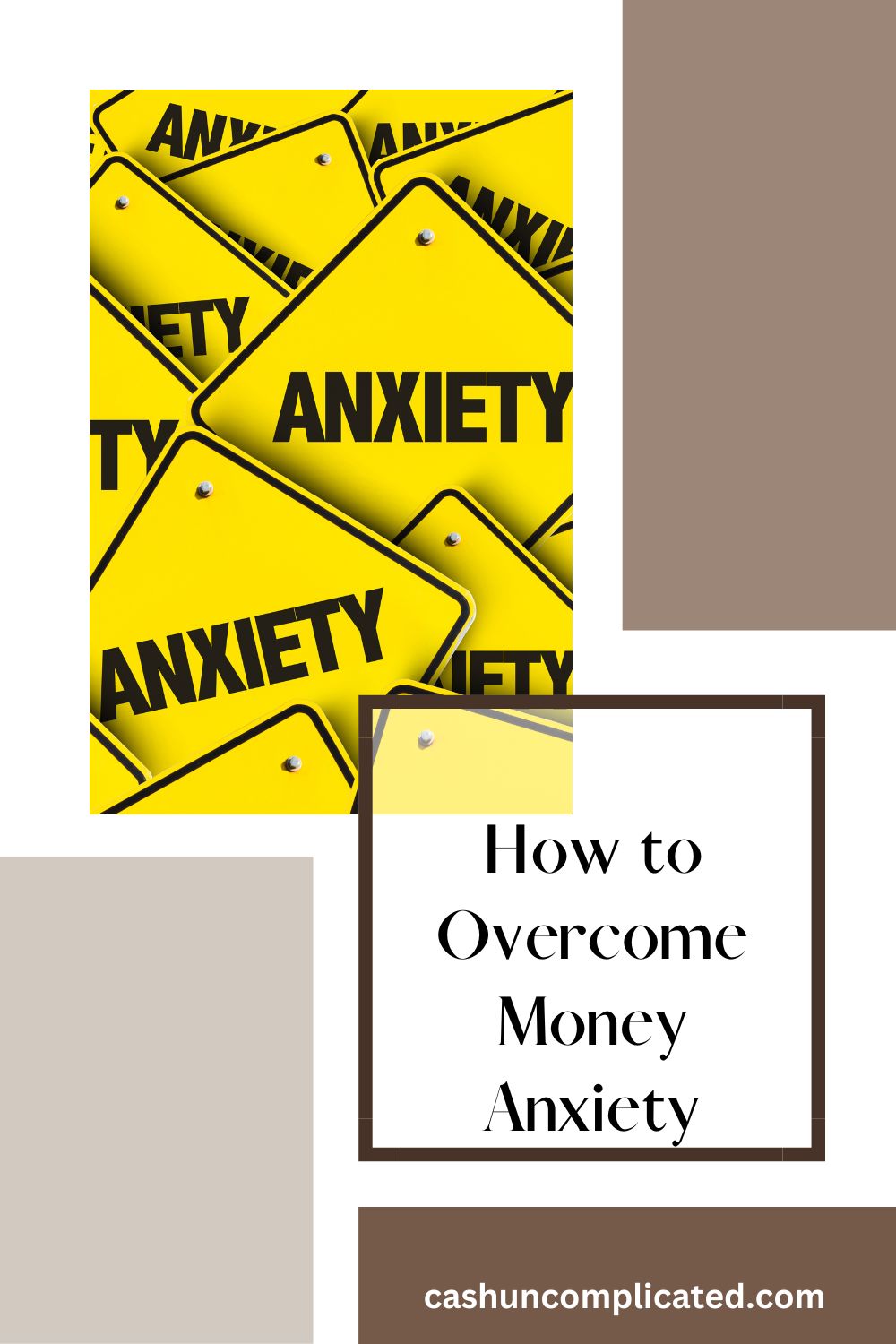I hear it a lot—investing is risky. Yes, investing definitely is risky. You can lose money investing short-term. It’s agonizing to think that you can work hard at your job, do what you believe is the right thing, and actually lose some of that money if you were to pull it out.
Person X goes to work, does a good job at work, works hard, invests 10 percent or more of their income, and then loses some of the money they invested. Wait, I thought the purpose of investing was to earn money, not lose money?
Yes, that is true. The purpose of investing is to passively earn more money and allow compounding to occur. Eventually to a point where the compounding far exceeds any contributions you are making. Here’s the thing though: it doesn’t always go in a perfect order of contribute, compound. The market fluctuates and sometimes we contribute, lose short-term, then win long-term.
Historically Speaking
The good news is that historically speaking, the market has always gone up. When I refer to the “market” I’m referring to both the stock market and real estate market in general terms. There have been multiple-year declines, but over time, the economy recovers and the market goes up.
That doesn’t mean it goes up in a straight line—there are dips and drops. Of course past performance doesn’t guarantee future results. However, as an investor, past performance is something I look at closely. Nobody has a crystal ball so I look at past performance as a key metric in my decision making.
Although I understand there are no guarantees in life, I play the odds. If the market has steadily increased over the last 100 years, I believe that trend will continue. It’s better information than anything else I have so I pay attention to it. Let me give you some common sense examples in other areas of life where I follow the historical trends:
- A poor diet will lead to health problems
- Smoking three packs of cigarettes a day will lead to major health issues
- Treating people poorly will result in fewer friends
- Not exercising will eventually result in poor cardiovascular health
There are literally hundreds of other statements you or I could make that most people would believe to be true. Using the four statements from above, it’s possible that some of these won’t come true for some people. In general, they are solid statements not many people would disagree with.
I don’t personally know them, but I’m sure there are people who have a poor diet and have few health problems. Same for exercise—I’m sure there are people in good health who rarely or never exercise. Those are outlier cases though, and not the norm.
Now and then I’m sure you’ve heard someone mention their uncle or grandfather who ate sausage and bacon every morning and lived until 96, or smoked three packs a day and lived until 85. Those people are mentioned for a reason, and it’s because they are outliers and beat long odds. It doesn’t mean anyone should pattern their own life after theirs.
The same principle goes for investing. Someone at some point in time probably violated a bunch of financial principles and still came out okay. That doesn’t mean anyone should follow that pattern. Data from the last 100 years is a much stronger predictor of success than outlier cases. Maybe I’m wrong, but I’ll take my chances with the odds.
Not Investing
For some reason it’s psychologically easier to not earn money than lose money. It’s a natural human behavior to protect what we already have, or consider ours. Ask most people if they’d be more upset if they lost $10,000 or missed out on an opportunity to earn $50,000 and I’ll bet most people would say they’d be more upset about losing the $10,000.
Try it out on yourself with the following examples. Would you be more upset if:
- You got scammed out of $5,000 or missed an opportunity to earn $20,000
- You lost $40,000 in three months during a stock market correction or missed out on $80,000 by investing more after a downturn
- The grocery store overcharged you by $10 or you missed a sale that could have saved you $18
What answers did you pick? Would you be more upset with the losing scenarios or the missed opportunities?
Even though the missed opportunities actually cost you more money, I’ll venture to guess that most people would be more upset with the losing scenarios. Losing feels real whereas the missed opportunities don’t feel as real. When in actuality they are costlier.
I provide these examples because the same principle applies to investing. Even though most of us know that markets have traditionally risen, nobody likes to lose, even in the short-term. It hurts a lot more to watch a $100,000 portfolio drop 30 percent in value over two months than it does to miss out on much larger gains (and avoid inflation) over a multiyear time period.
Kind of a cruel trick our minds play on us. We’re more adverse to losing than going after what is financially better for us. Even though the historical evidence indicates the gains are much higher than the short-term loses. Definitely something I’ve become more aware of, and encourage others to become more aware of as well.
Whether we admit it or not, investing is an emotional roller coaster. It’s hard to stomach the dips, turns, and backward loops the market brings us. It’s easy to want to get off the ride when it becomes extra bumpy. The tracks ahead look scary and there’s a possibility of losing more money. Even though we know the market is likely to go back up, sometimes the thought of losing one more cent is too much to take and we take our money out.
Take the Emotion Out of It
It’s challenging to do, but we have to take the emotion out of investing. It’s really easy to check your portfolio daily (or more), and ride the wave of the market cycles. We feel a high when the market is up, and a low when the market is down. Oftentimes when the market goes too far down, people pull their money out, only to put it back in when the market is going back up.
It’s easy to say “take the emotion out of it”, but challenging to actually put in practice. It hurts to watch a portfolio go down in value and not do anything. It’s equally challenging to watch an investment like real estate go up in value and not be tempted to sell and cash out.
For example, I’ve heard more than one homeowner state that today’s market is “the top” and suggest they should sell, rent, then wait for the market to “crash.” Then buy again and come out with a bunch of extra cash.
The market could crash and that investor would feel like a prophet. Or the market could continue to rise and price that person out of future purchases because they don’t have market equity anymore. The market could also flatten out and leave that person in limbo for the next several years.
It’s impossible to predict what’s going to happen in the market, or anything for that matter. When we let our emotions get involved, we often think we know the answers and then convince ourselves that we’re right. Despite historical evidence suggesting we should continue to invest, people often go with their instincts and regret it later.
Try the following strategies to avoid succumbing to emotional pressures:
- Talk it over with a professional like a CPA or a fee-only financial advisor
- Don’t look at your portfolio as often
- Take a 24 hour pause when you feel the instinct to pull money from an investment
- Follow Warren Buffet’s advice and only buy investments you’d be happy to hold for 10 or more years
- Look at the historical data
All these strategies will help take the emotion out of it and help you make sound decisions for you and your family. Ultimately, it’s important to remember that everything in life comes with risk. Investing is no different.
Are you a consistent investor or do you enter and exit the markets frequently?










